Discussing in groups at the 10th session of the 15th National Assembly on draft laws, including the draft Law on amending and supplementing a number of articles of the Law on Insurance Business, some opinions said that there should be a fundamental solution to strengthen people's trust in compulsory civil liability insurance for motor vehicle owners (motorcycle insurance ) .
Regarding this issue, the reporter had an interview with National Assembly Delegate Nguyen Thi Viet Nga - Member of the City Party Committee, Deputy Head of the National Assembly Delegation of Hai Phong city.
The compensation settlement process in many places is still cumbersome, time-consuming and lacks transparency.
According to the Delegate, has the current compulsory motorbike insurance really played its role and purpose in ensuring the rights of participants?
- In reality, after many years of implementation, compulsory civil liability insurance for motorbike and scooter owners has not yet achieved the expected results. The rate of people buying insurance is mainly a formality to deal with traffic control forces, but they do not really consider this as a tool to protect their own rights.
So what is the cause of this, Mr. Delegate?
- I think there are 4 main reasons:
Firstly, the propaganda work is still limited. Many people do not understand the nature of this type of insurance, which is to protect the rights of third parties who are damaged, not insurance "for themselves" in the sense of being compensated when they have an accident. Lack of understanding leads to apathy, thinking that "buying is the same, not buying is the same", thereby reducing the level of voluntary compliance.
Second, the compensation settlement process in many places is still cumbersome, time-consuming and lacks transparency. People have to provide many documents and evidence that are difficult to prove, while insurance companies still show signs of "reluctance to pay".
In reality, there are many accidents where, even though the person causing the accident has purchased compulsory insurance, it is very difficult for the victim or the victim's family to access compensation. This causes people to lose confidence, leading to the thought: "Buying insurance is just to avoid being fined, but when needed, it is not resolved."

Delegate Nguyen Thi Viet Nga (Hai Phong delegation) said it is necessary to increase people's trust in motorbike insurance. Photo: National Assembly Media
Third, the compensation level is still relatively low compared to the actual cost. For example, the maximum insurance liability for personal injury is 150 million VND/person/incident, while the cost of medical treatment, rehabilitation or compensation for long-term loss of working capacity is often much higher. Thus, current insurance only plays a partial supporting role and has not created a truly solid financial foundation.
Fourth, state management is still inadequate. Post-sale inspection and supervision is still weak; there is no synchronous database system between the authorities and insurance companies; although there are regulations on penalties, enforcement is not strict, many violations are not handled or handled inconsistently.
It is necessary to propagate so that people understand that motorbike insurance is a "financial shield" when risks occur.
There is an opinion that we should remove the "mandatory" feature of motorbike insurance. What is the Delegate's opinion?
- In my opinion, it should not be compulsory. The nature of civil liability insurance is a legal tool to ensure the rights of third parties who are unfortunately damaged by traffic accidents.
This is a humane policy, sharing risks on a social scale. If the compulsory policy is removed, many people will not buy insurance, leading to a situation of “self-responsibility”, causing victims to not be compensated, creating a burden for families, society and public health facilities.
Besides, in complex traffic conditions, the number of motorbikes accounts for more than 70% of motor vehicles, accidents involving motorbikes account for a high rate, so compulsory insurance is an important measure to reduce conflicts, ensure civil liability and social order and safety.
However, maintaining the mandatory nature does not mean keeping the old way of doing things. If we continue to apply a formal mechanism, without improving the quality of services or increasing people's trust, the compulsory purchase of insurance will become a burden and cause negative reactions.
Therefore, what needs to be done is not to "remove or keep", but to "innovate the way of organization, management and implementation" so that the policy can truly come into life.
How to make compulsory motorbike insurance effective and ensure consumer rights, madam?
- In order for this policy to truly play its role in protecting people, in my opinion, it is necessary to focus on the following groups of solutions:
First, raise awareness and change the way of propaganda. It is necessary to change from one-way propaganda to specific, easy-to-understand and easy-to-receive instructions.
It is possible to present real-life situations, illustrative videos, and social media applications to help people understand that insurance is not to “deal with the police” but to be a “financial shield” when risks occur. Schools, youth unions, and neighborhood groups can also participate in educating people about insurance participation.
Second, reform compensation procedures and apply digital transformation. The State needs to require insurance companies to deploy electronic compensation records, take photos of the scene via the application, and connect with traffic police and hospital accident data.
Compensation settlement time should be clearly defined, if overdue, automatic advance payment should be made to the victim. This will increase transparency and strengthen people's trust.
Third, adjust the level of compensation liability to suit reality. It is possible to study raising the compensation level for human damage to a level commensurate with current treatment costs.
At the same time, expand the coverage to legal costs, psychological support, and post-accident rehabilitation, as many countries have applied.
Fourth, strengthen inspection and supervision of insurance companies. The Ministry of Finance and the Ministry of Public Security need to coordinate to build a common database, manage insurance contracts with identification codes, and avoid cases of forgery and evasion. Any company that is slow to pay or avoids responsibility must be severely punished, even have its business license revoked if it commits serious violations.
Fifth, consider flexible distribution options. In addition to selling insurance at traditional agents, it can be implemented through banking applications, e-wallets, post offices, or integrated right when registering and inspecting vehicles. This is both convenient and creates conditions for centralized management, limiting the situation of "buying for the sake of it and then throwing it away".
Sixth, better protect the rights of the disadvantaged. The State can consider supporting insurance premiums for students, poor workers, or those in mountainous and remote areas, who both need protection and have limited financial capacity. That will spread the humanity of the policy.
In short, when people clearly feel that their rights are guaranteed, when procedures are transparent and compensation is timely, participating in insurance will become a voluntary behavior, without the need for reminders or penalties. That is the real success of the policy.
Thank you very much, Delegate!
Source: https://laodong.vn/thoi-su/dai-bieu-quoc-hoi-khong-nen-bo-bao-hiem-xe-may-can-minh-bach-tang-niem-tin-nguoi-dan-1603991.ldo




![[Photo] Opening of the 14th Conference of the 13th Party Central Committee](https://vphoto.vietnam.vn/thumb/1200x675/vietnam/resource/IMAGE/2025/11/05/1762310995216_a5-bnd-5742-5255-jpg.webp)



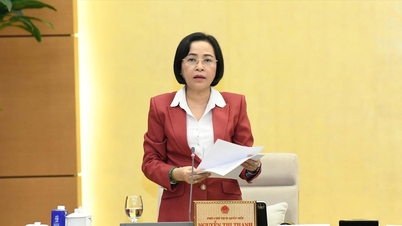

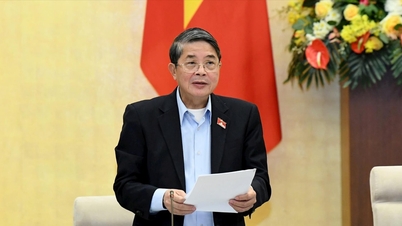




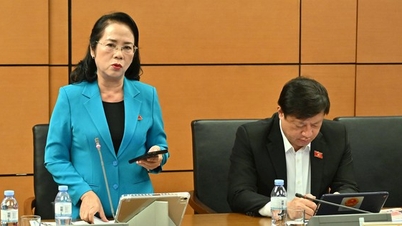

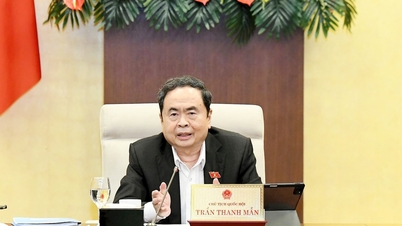
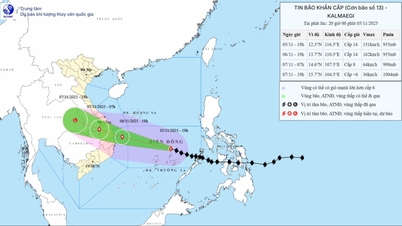

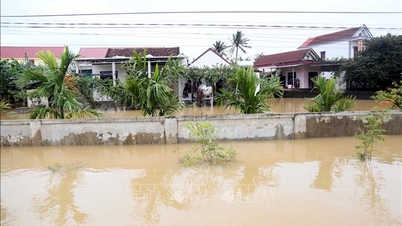


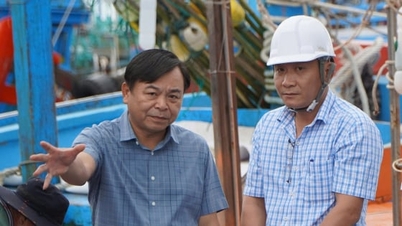
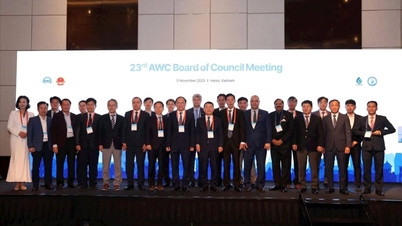
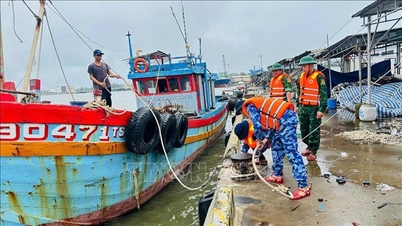







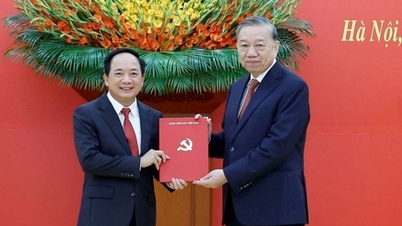


![[Photo] Panorama of the Patriotic Emulation Congress of Nhan Dan Newspaper for the period 2025-2030](https://vphoto.vietnam.vn/thumb/1200x675/vietnam/resource/IMAGE/2025/11/04/1762252775462_ndo_br_dhthiduayeuncbaond-6125-jpg.webp)



















































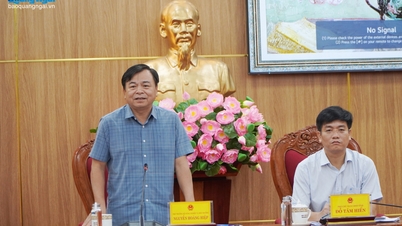





















Comment (0)